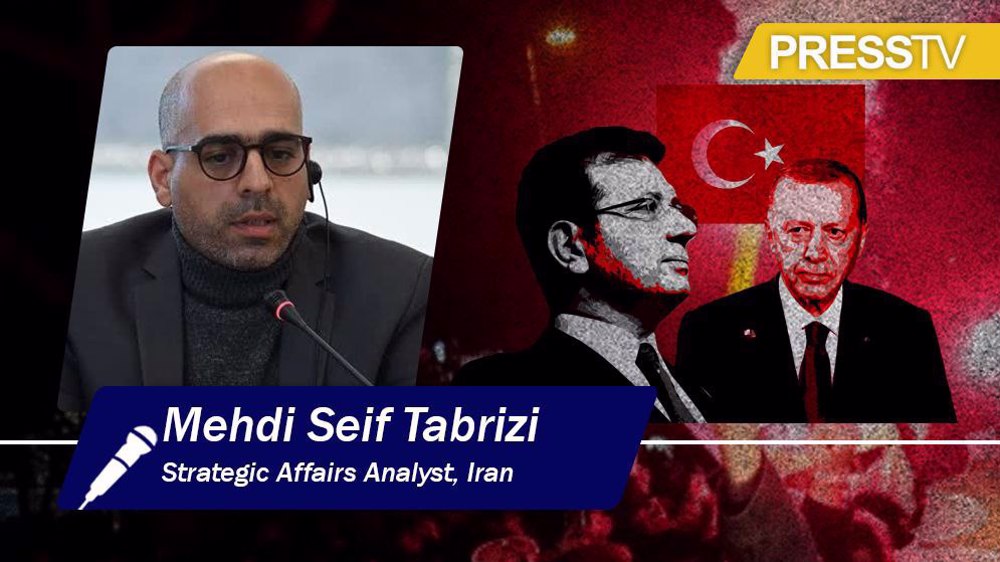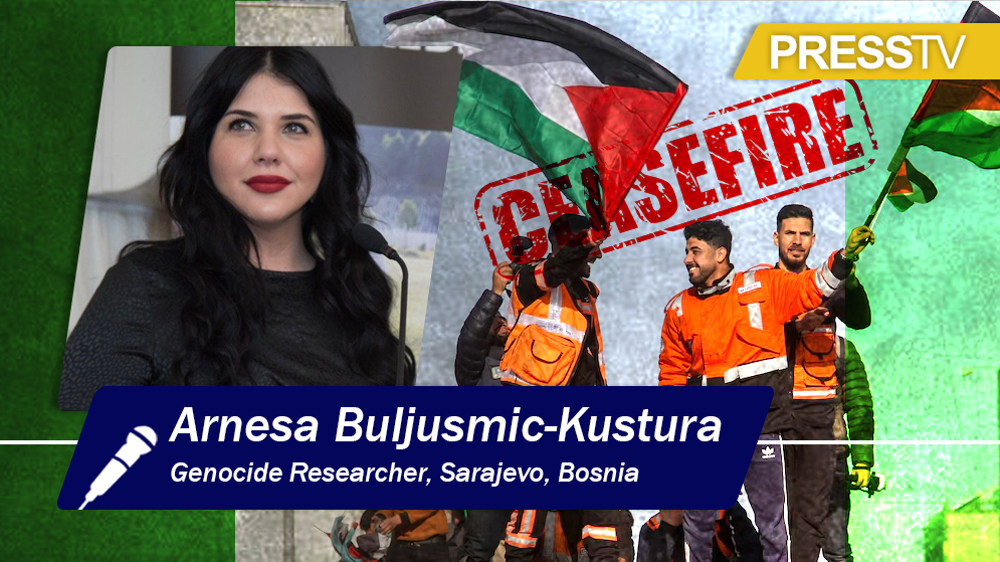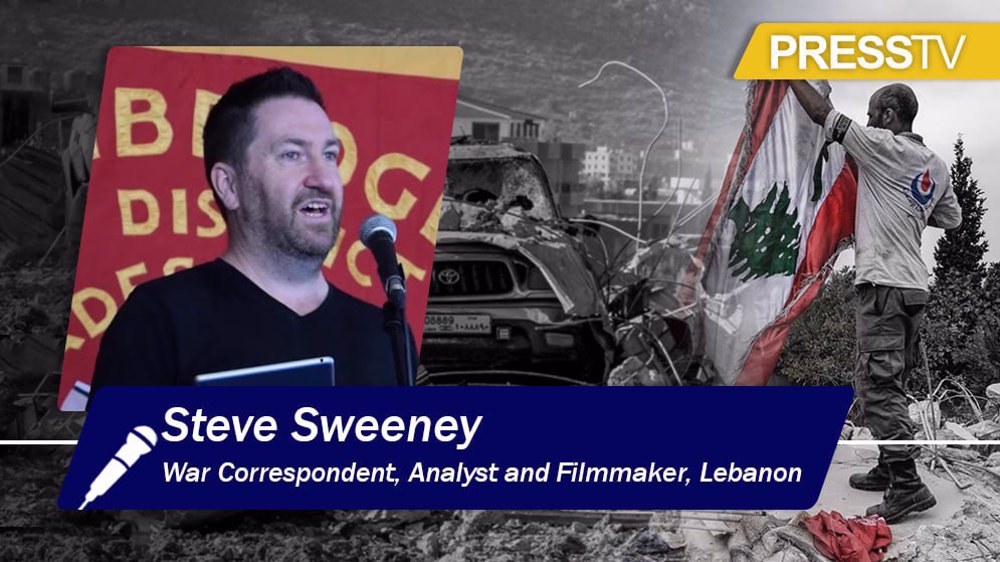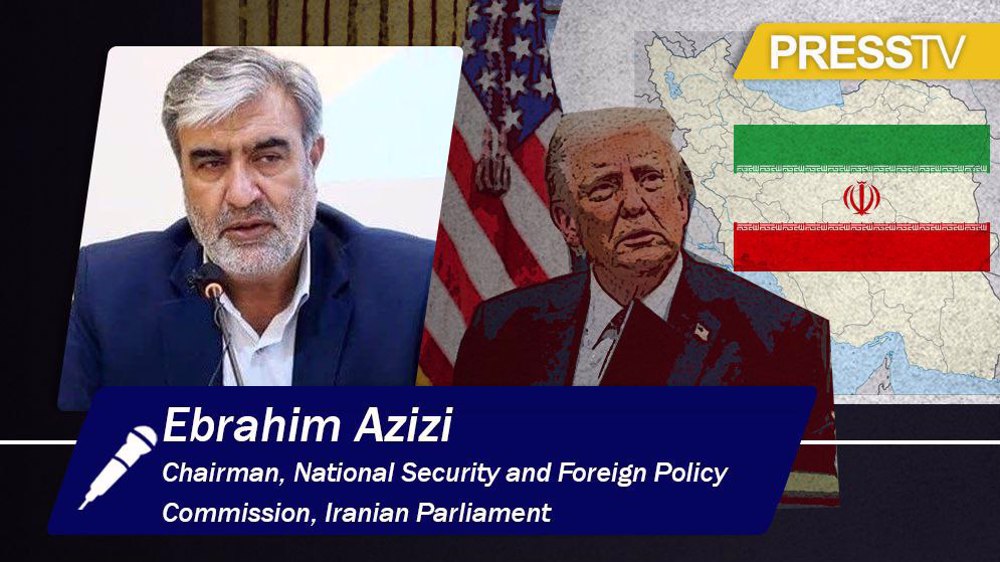Trump’s letter not an olive branch but a pressure tactic against Iran: Sr. Lawmaker
By Alireza Hashemi
A letter from the US president to Iran is not a genuine olive branch offering an opportunity for dialogue but another maneuver in the long-running American pressure campaign against Iran, says a senior Iranian lawmaker.
Ebrahim Azizi, a member of parliament from the southern city of Shiraz and chairman of the parliament's National Security and Foreign Policy Commission, made these remarks in an interview with the Press TV website.
The early March letter from Donald Trump to Iran, apparently proposing negotiations for a replacement to the 2015 nuclear deal, has sparked debate both within Iran and outside.
As the so-called "termination day" of the Joint Comprehensive Plan of Action (JCPOA), commonly known as the Iran nuclear deal, approaches, discussions on a potential replacement agreement have intensified.
The original deal, signed in 2015, required Iran to implement some confidence-building measures in exchange for sanctions relief.
While Iran fully complied with its obligations under the deal, it was the US, during Trump's first term as president, that unilaterally walked out of the agreement and launched the so-called "maximum pressure campaign" against the Islamic Republic of Iran.
Many rounds of indirect negotiations were held between Tehran and Washington during the tenure of Joe Biden, but they failed to produce a breakthrough due to the policy of procrastination exhibited by the US.
Recently, the US, along with its European allies, has been pushing for a new framework with broader limits on Iran’s peaceful nuclear activities, as well as restrictions on its missile program and regional presence.
The Trump administration has also recently scaled up its "maximum pressure" campaign against Iran through warmongering rhetoric, connecting Yemeni retaliatory military operations against US warships to Iran.
'Extension of maximum pressure campaign'
Azizi characterized the letter as an extension of this campaign rather than a sincere offer of engagement.
“Given America’s hostile policies and illegal actions, Trump’s letter cannot be considered a credible opportunity. It is more likely designed as a tool for political pressure dressed up as diplomacy,” Azizi said.
Azizi stressed that, in line with the position of the Leader of the Islamic Revolution, Ayatollah Seyyed Ali Khamenei, negotiating with the US under such conditions amounts to accepting coercion.
This stance, he explained, is rooted in both principle and experience.
“Iran firmly emphasizes independence, dignity, and resistance against coercion. Any diplomatic action must be based on mutual respect and equality. The US position lacks this respect and, therefore, does not create the groundwork for direct talks,” he said.
Despite this, Azizi clarified that Iran is not entirely closing the door to diplomacy. The country continues to pursue sanctions relief through legal and diplomatic channels, such as the United Nations and negotiations with other powers.
'Need for removal of sanctions'
On the conditions Iran would require for an alternative agreement to the JCPOA, Azizi noted that such a deal must mandate the complete removal of all anti-Iran sanctions, rather than merely suspending them, as was the case in the 2015 accord.
He asserted that any new agreement must include reliable and legally binding assurances to prevent future violations.
Azizi cited the “bitter experience” of the JCPOA, which was repeatedly undermined by US violations and ultimately derailed by Washington’s unilateral withdrawal in 2018.
The senior lawmaker emphasized that the US and its allies must cease placing political pressure on Iran, noting that this step would not only demonstrate goodwill but also foster trust-building, allowing the spirit of the agreement to be upheld.
Only then can Iran fully reap the economic benefits it is entitled to, he stressed.
The US must also respect Iran’s right to the peaceful use of nuclear energy in accordance with its needs and interests, Azizi said, noting that this would signal that Washington is not opposed to Iran’s scientific progress.
'Russia, China aid in countering US pressure'
The member of Iran's parliament and chairman of the National Security and Foreign Policy Commission highlighted the critical contributions of China and Russia as close partners of Iran in “countering the political and economic pressures from the US.”
“These collaborations, rooted in national interests and mutual respect, strengthen Iran’s position. Economic and diplomatic relations with these countries, including long-term agreements and extensive cooperation, underscore the depth of these interactions,” he stated.
Earlier this month, Iran, Russia, and China held trilateral talks in Beijing on the nuclear issue, focusing on exploring paths to revive or replace the JCPOA.
Both Russia and China, as signatories of the 2015 deal, have repeatedly criticized Western maximalist demands during the nuclear talks and the failure to effectively lift sanctions on Iran.

Turkey’s political unrest to significantly weaken Erdoğan’s grip on power: Analyst

Gaza truce deal durability uncertain due to lack of Israeli commitment: Genocide scholar

I saw shredded bodies scattered on roads and hanging from trees in Lebanon: Journalist
Palestine Land Day: A powerful emblem of resistance against settler-colonialism
Iran wins Asian Freestyle Wrestling Championship in Jordan
14 Gaza medics killed by Israeli military fire found in Rafah: Red Crescent
Iran can rely on its hydrocarbon resources for 100 years: NIOC
Syria's Kurds reject legitimacy of new 'transitional government'
VIDEO | Press TV's News Headlines
VIDEO | Palestine Land Day
VIDEO | Seoul rally condemns Israeli attacks, US crackdown on pro-Palestinian students







 This makes it easy to access the Press TV website
This makes it easy to access the Press TV website